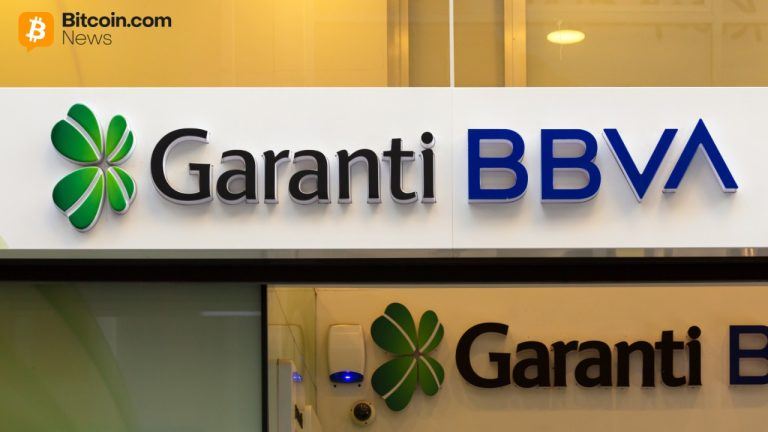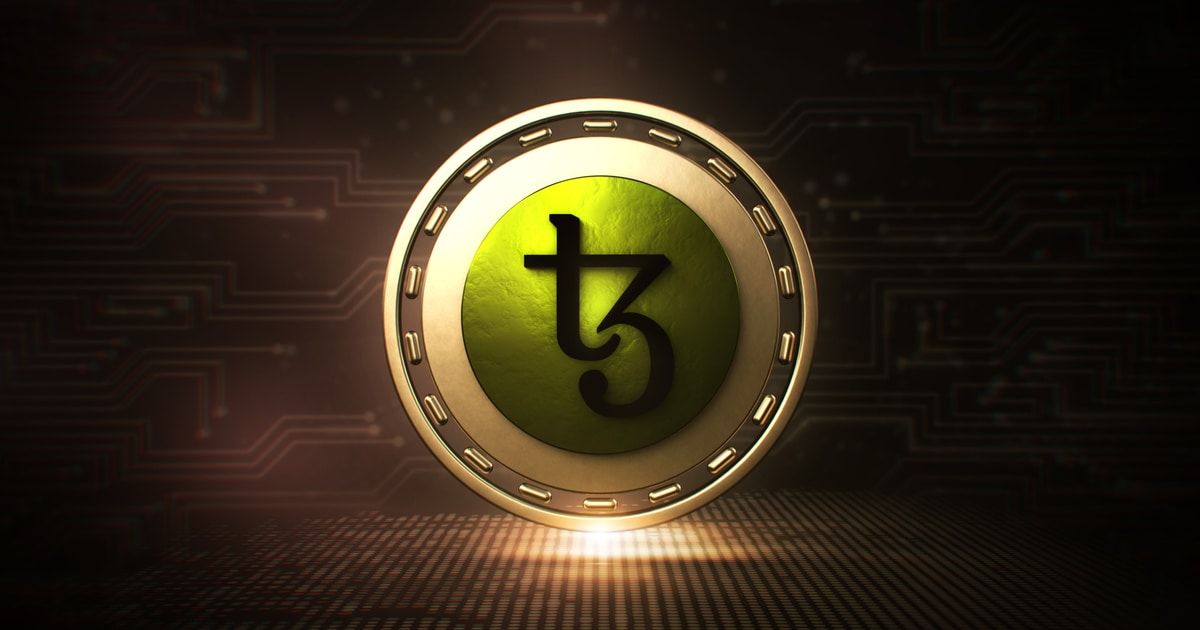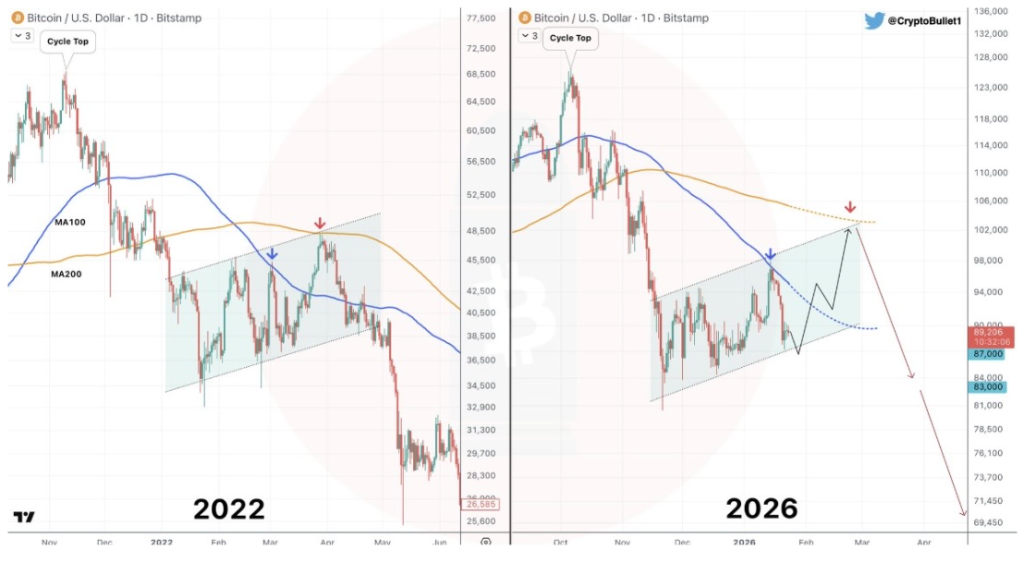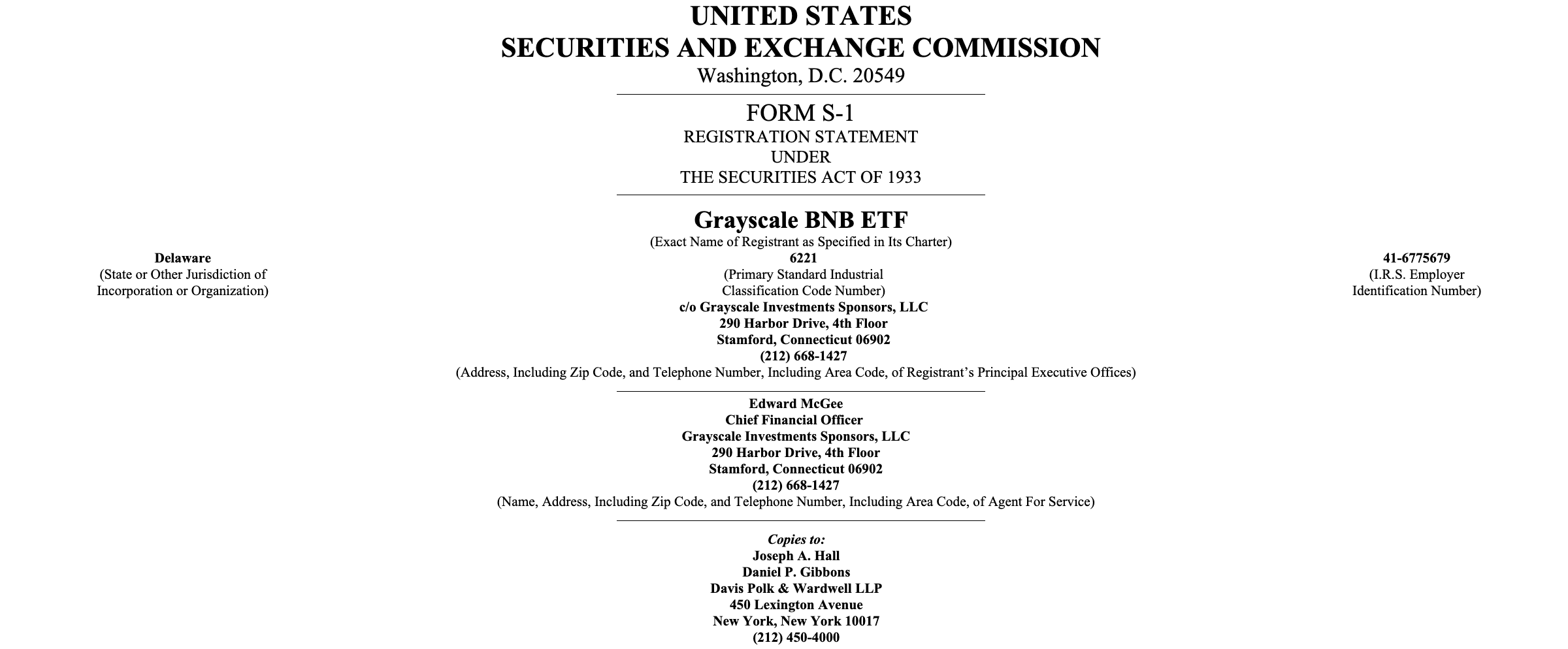
Lawyers say they are seeing an increasing number of divorce settlements featuring digital assets.
Most crypto investors probably aren’t thinking about divorce or what will happen to their digital assets in the event of separation, but lawyers say it’s becoming a very common scenario as more people hold crypto assets.
Last year, market research firm GWI suggested that as much as 10.2% of global internet users aged 16 to 64 own crypto, with most ownership skewed toward nations experiencing high inflation or fluctuation in the value of their national currency.
Independent data and statistics tracker World Population Review suggests the divorce rate worldwide varies between lows of 0.15 divorces per 1,000 residents in Sri Lanka to highs of 5.52 per 1,000 people in the Maldives.

Speaking to Cointelegraph, Claire Walczak, a senior associate from independent law firm Lander & Rogers, who works in the firm’s family and relationship law practice, says family lawyers are seeing an increasing number of divorce settlements featuring digital assets.
She says it’s a “rapidly changing and evolving area of law,” so it’s important to have specialist family law advice if you have a matter involving digital assets.
According to Walczak, once divorce proceedings start, the court follows a process to determine how property and financial matters will be settled.
This can include determining what assets are available for division, assessing the parties’ respective contributions, considering whether it is just and equitable to make any adjustments, and evaluating each party’s future needs.
The same process applies when dealing with digital assets. Both parties in the divorce are obligated to disclose all documents concerning their assets, digital or otherwise.
Walczak says both parties to a property settlement are entitled to retain the crypto as part of their overall property settlement entitlements, regardless of whose name it is held.
If both parties seek to retain the crypto and fail to reach an agreement, courts may consider factors such as, who paid for the crypto, and who owns the wallet, when deciding who retains the asset.
“As part of this process, the court identifies and values the existing assets of the parties, which includes all digital assets,” Walczak said.
“In the case of cryptocurrency, the value of the asset type is determined by the open market and can be assessed via an exchange,” she added.
Market fluctuations can affect values
The crypto market can be volatile at the best of times, with exchange collapses and other factors pushing values down without warning.
Bitcoin (BTC) — the largest cryptocurrency by market capitalization — achieved an all-time high of over $68,000 on Nov.10, 2021, but has since lost a considerable portion of its value and sits at roughly $28,000 at the time of writing.
Recent: Bitcoin is on a collision course with ‘Net Zero’ promises
Walczak says the volatile and rapid fluctuations in crypto value can be a factor when splitting assets during divorce proceedings.
“This can pose a risk to clients seeking to retain a large proportion of their property settlement entitlements in the form of cryptocurrency. This may need to be factored into the property settlement,” Walczak said.
“Once the value is determined, the parties can negotiate as to who will retain the cryptocurrency or, if neither party wishes to retain the cryptocurrency, whether it will be sold,” she added.
She noted that another consideration for family lawyers is that people who have acquired crypto as an investment asset must pay capital gains tax on any disposal, exchange or swap.
According to Walczak, if both parties in a divorce agree that the crypto should be sold as part of the property settlement, then the capital gains tax liability will be realized and form part of the asset pool.
“If, however, a party elects to retain cryptocurrency as an investment, then the capital gains tax liability will not be triggered, and the party retaining that asset may hold substantial unrealized capital gains,” Walczak said.
“Once it is determined who will retain the cryptocurrency or whether it will be sold, this can be documented in court orders,” she added.
According to the legal research platform Lexology, the case law on issues relating to cryptocurrency and its value is limited. However, there have been several high-profile cases in recent years where the value of crypto assets has taken center stage.
Lexology cites the 2020 Australian case of Powell vs. Christensen, where one party in divorce proceedings had purchased crypto, and the other sought the digital asset to be valued at its original purchase value rather than the market price.
The party who purchased the crypto argued that its value had decreased significantly since the purchase but did not disclose any documentation to support the case.
Ultimately, the Family Court of Australia determined the purchase value should be used for the divorce settlement rather than the reduced market value.
Staking and divorce
Walczak says crypto staking rewards can also form part of either spouse’s income and are recorded on their individual tax returns — similar to how dividends are dealt with.
Crypto staking involves locking up crypto holdings to earn interest or rewards. Staking is also how specific blockchain networks verify transactions.
“This will have the effect of increasing that spouse’s taxable income, which may impact upon their final property settlement entitlements,” she said.

She also noted that if a spouse elects to retain the “crypto staking rewards,” they will be retaining a potential income-generating asset, which may impact upon that party’s property settlement entitlements.
A party may also request to be paid in a particular currency, which could include crypto; however, Walczak says a party can’t elect to pay another party in a currency where it is seen to disadvantage the recipient of that payment.
Laws in place to keep everybody honest
In a recent case, the divorce proceedings of a New York couple took a turn after a forensic accountant helped track down the husband’s stash of BTC, which he was trying to hide from his wife.
Australian digital assets lawyer Joni Pirovich told Cointelegraph that broadly, crypto tokens are included in the pool of assets for division in a divorce.
Pirovich, the principal at Blockchain & Digital Assets, also noted specific laws requiring each spouse to be truthful about the assets and other forms of property owned.
During her career, she has already had experience with crypto divorce cases and revealed there are options available to help track down any hidden crypto.
According to Pirovich, one of the parties often knows the other has purchased crypto, but the other is not being truthful or doesn’t know how to aggregate the information.
“In some cases, a ‘legal request’ is made of the other party to produce the information,” she said.
“In other cases, I have provided contacts such as crypto tax specialists or crypto forensic specialists to assist with identification of crypto tokens held, and profits/losses made from crypto token activities to assets with the fair and equitable division of property in a divorce,” she added.
Prenuptial agreements and crypto
A prenuptial agreement, or pre-nup, is a common legal agreement a couple makes before they marry concerning the ownership of their respective assets should the marriage fail.
According to Pirovich, crypto can be included in a binding financial agreement, including a prenuptial style agreement.
She says if a binding financial agreement exists, then specific entitlements to specific assets, such as crypto tokens, must be honored according to that agreement.
Recent: Wife finds husband’s Bitcoin stash amid divorce proceedings
However, if there is no pre-nup, then factors such as the length of the marriage, financial and non-financial contributions throughout the marriage, and whether one party will become the primary or substantial carer of any children are relevant factors in splitting the asset pool.
“Often, the party not involved in crypto tokens does not wish to receive any share of crypto tokens but rather the fiat currency amount invested, or their share of profits on the sale of the crypto tokens paid to them in fiat currency,” Pirovich said.
Ultimately, to avoid any issues down the track, she advises honest and open discussions with a partner about finances on a regular basis.
Recent: From cricket to crypto: AB de Villiers ventures into Web3
“There can be emotional reasons why a person seeks to maintain a level of financial independence from the marriage and assets treated as jointly owned by the couple. This tends to come up for people reentering marriage after a first divorce,” Pirovich said.
“At least annual discussions should be had about crypto and the couple’s financial position as part of annual tax return filing obligations, and at least every three years when the couple considers their wills and estate planning documents and revisions required,” she added.

You can get bonuses upto $100 FREE BONUS when you:
💰 Install these recommended apps:
💲 SocialGood - 100% Crypto Back on Everyday Shopping
💲 xPortal - The DeFi For The Next Billion
💲 CryptoTab Browser - Lightweight, fast, and ready to mine!
💰 Register on these recommended exchanges:
🟡 Binance🟡 Bitfinex🟡 Bitmart🟡 Bittrex🟡 Bitget
🟡 CoinEx🟡 Crypto.com🟡 Gate.io🟡 Huobi🟡 Kucoin.




















Comments